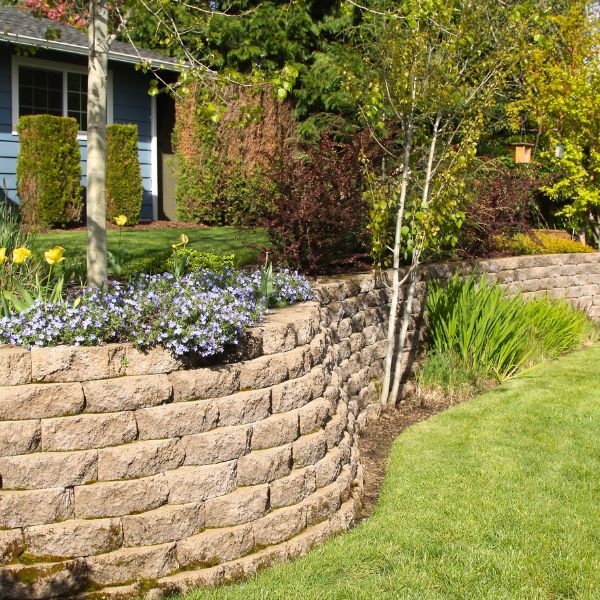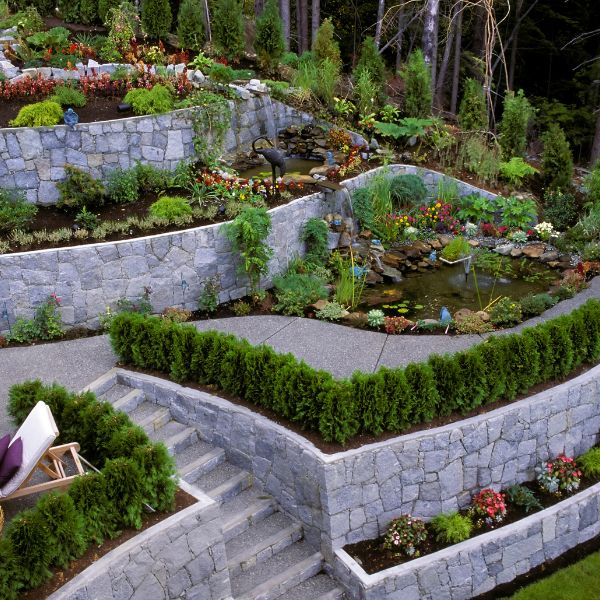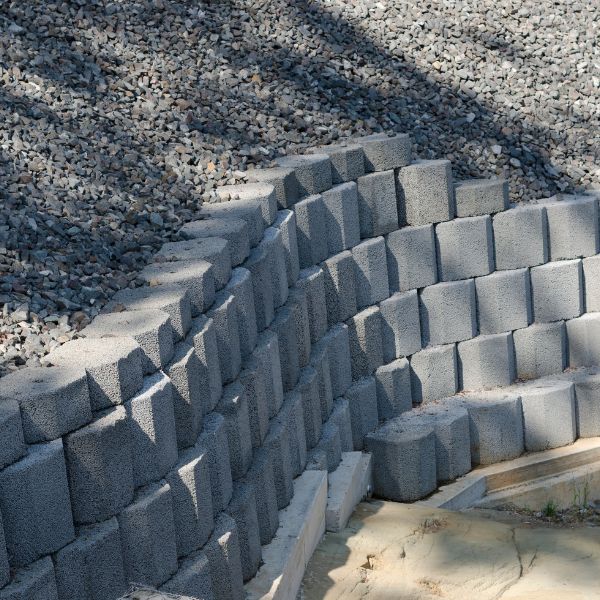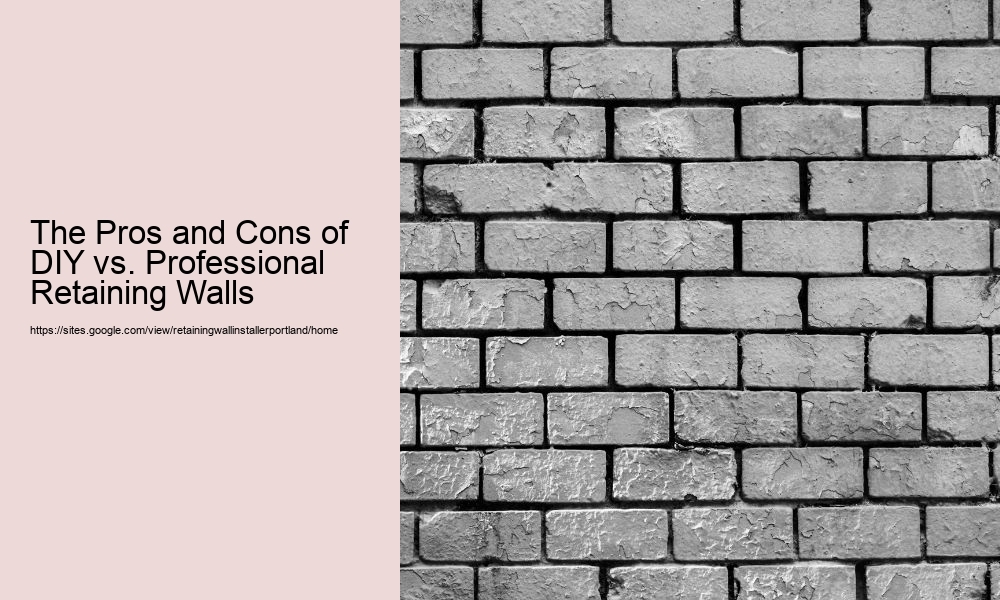Cost Comparison: DIY vs. undefined undefined undefined. Professional Retaining Walls
When it comes to building a retaining wall, one of the biggest questions is whether to take the DIY route or hire a professional. Both options have their merits and drawbacks, so its definitely not a one-size-fits-all decision. Let's look at the cost comparison and weigh the pros and cons of each.
First off, DIY retaining walls can be way cheaper upfront. You're not paying for labor, which can often be the most expensive part of the project. Plus, you have complete control over materials and design. However, lower cost doesn't always mean better value. If youre not experienced (and let's be honest, most of us arent structural engineers), mistakes can happen. These mistakes might lead to costly repairs or even a total rebuild down the road. Imagine spending hours stacking blocks, only for the wall to collapse after the first heavy rain-yikes!
On the other hand, hiring a professional will probably cost you a lot more upfront. Labor charges, permits, and premium materials can add up quickly. But you're paying for expertise and peace of mind. Professionals know how to build walls that last (and won't fall apart under pressure). They also understand drainage systems and soil types, things you might overlook if you're doing it yourself. Not to mention, it's less stress for you-no hauling heavy materials or figuring out confusing instructions. That's a win, right?
One downside to hiring a pro, though, is that you lose some control. You might have a specific vision for your wall, but contractors may suggest changes based on practicality or cost. And honestly, who wants to argue over design details? Strength Plus, let's not forget, not all professionals are created equal. If you don't research properly, you might end up hiring someone who does a subpar job.
So, which option is better? It depends. If you're on a tight budget and have some DIY skills (and patience!), building your own retaining wall could save you money. But if you want a durable, worry-free wall and can afford the extra expense, hiring a professional is probably the smarter choice. At the end of the day, you've got to ask yourself: is saving money worth the risk of potential headaches? A poorly built wall is no bargain, thats for sure!
While DIY might seem tempting, it's not always the best choice. And while professionals can seem pricey, they know what they're doing. Guarantee So weigh your options carefully-your retaining wall (and your wallet) will thank you!
Time and Effort: Balancing the Workload

When it comes to retaining walls, deciding between a DIY project and hiring a professional can be a tough call. Both options have their own set of pros and cons, and honestly, it often comes down to balancing time and effort. Let's dive into this a little deeper.
First off, tackling a retaining wall yourself can be incredibly rewarding. Theres something satisfying about looking at a finished project and thinking, “I did that!” Plus, it can save you quite a bit of money since you're cutting out labor costs. But here's the thing-building a retaining wall isn't exactly a walk in the park. It requires planning, precision, and a good chunk of your time (and let's not forget patience). If you've got a busy schedule, spending weekends digging, leveling, and stacking blocks might not be the best use of your limited free time.
On the flip side, hiring a professional means you don't have to worry about all the nitty-gritty details. A contractor knows the ins and outs of building a sturdy, long-lasting retaining wall. They'll understand things like drainage, soil pressure, and stability in ways most of us just don't. But-here's the downside-it's not cheap. Professional work can cost a pretty penny, and not everyone has the budget for it.
Let's not ignore the effort involved in DIY projects either. Sure, you might save money, but the physical labor can be exhausting. If you're not used to hauling heavy materials or working outdoors for hours on end, it could take a toll on your body. And, let's be honest, mistakes happen. If the wall isn't built correctly, you could end up spending more time (and money) fixing it than if you'd just hired someone from the start.
That being said, it's not like professionals are perfect either.
The Pros and Cons of DIY vs. Professional Retaining Walls - Strength
- Hardscape
- Cement
- Boulder
- Style
- Drainage
- Gallery
So, what's the takeaway? There's no one-size-fits-all answer. If you've got the time, energy, and a knack for hands-on work, DIY might be the way to go.
The Pros and Cons of DIY vs. Professional Retaining Walls - Slope
- Durability
- Contractor
- Foundation
- Block
- Storm
- Footing
- Installation
Long-Term Durability and Maintenance

When it comes to the long-term durability and maintenance of retaining walls, the debate over DIY versus professional installation can get pretty interesting (and maybe even a little heated!). The truth is, both options have their pros and cons, but one things for sure-longevity and upkeep can make or break your decision.
For DIY retaining walls, durability often depends on the builders experience and attention to detail. Slope If youre not super confident in your skills or don't follow proper techniques, the wall might not last as long as youd hoped. Poor drainage, uneven stacking, or using the wrong materials can lead to early wear and tear-or worse, the wall could fail entirely. And trust me, fixing a collapsed retaining wall isnt something youd want to deal with. Plus, let's be honest, most of us aren't structural engineers! Maintenance for DIY walls can also become a headache if mistakes were made during construction.
On the other hand, professionally built retaining walls are usually designed to stand the test of time. Experts know how to choose the right materials, handle tricky slopes, and engineer walls that'll hold up against the elements. That's a huge plus. However, that doesn't mean they're completely maintenance-free. Even the best-built wall might need some occasional repairs or touch-ups. But hey, at least you're not left wondering if the whole thing was built correctly in the first place.
That said, professional work doesnt guarantee there wont be issues down the road. And let's face it-calling a contractor back to fix something isn't exactly cheap. So, while professionals might give you peace of mind, they don't offer a perfect solution either.
In the end, the long-term durability and maintenance of your retaining wall comes down to how much effort youre willing to put in-either upfront (if you're going DIY) or financially (if you're hiring a pro). Neither option is flawless, but with the right planning and care, both can serve you well. Just dont skimp on quality, or you might regret it later!
Environmental and Aesthetic Considerations
When it comes to building a retaining wall, you've got two main options: doing it yourself (DIY) or hiring a professional. Both choices come with their own set of pros and cons, especially when you consider environmental and aesthetic factors. It's not always an easy decision to make, and honestly, there's no one-size-fits-all answer here.
First off, let's talk about the environmental impact. DIY retaining walls might seem like a great idea, but they can sometimes cause more harm than good. If youre not careful with the materials you use or the drainage system (yes, drainage matters a lot!), you could end up with soil erosion or water runoff issues. Professionals, on the other hand, usually have the expertise to design a wall that's more eco-friendly. They know how to work with the land instead of against it. But-and here's the catch-it doesn't mean every pro will get it right. Not all contractors are as environmentally conscious as they should be.
On the aesthetic side of things, DIY walls can be a bit of a gamble. You might have a specific vision in mind, but executing it? That's a whole different story. A poorly constructed wall can look uneven or, worse, out of place. That's not exactly the vibe you're going for in your backyard, right? Professionals, with their experience, usually deliver cleaner, more polished results. Still, hiring a pro doesn't guarantee perfection; sometimes, their idea of "aesthetic" might clash with yours. Ugh, frustrating!
Another factor to consider is cost. DIY might be cheaper upfront, but if you mess up (and let's be real, it happens), fixing those mistakes can get expensive-fast. Not to mention the time and effort it takes to learn the necessary skills. Professionals come at a higher cost initially, but they're less likely to make major mistakes that could lead to long-term damage. Again, it's not like they're immune to errors, though!
So, what's the verdict? Well, it really depends on your priorities. If you're confident in your skills and willing to put in the effort, a DIY project can be rewarding. But if you're worried about the environmental impact or want a flawless look, hiring a professional might be the safer bet. Either way, it's important not to rush the decision. Take your time to weigh your options and think about what's best for your specific situation. After all, a retaining wall isn't just a wall-it's a key part of your outdoor space. Make it count!

